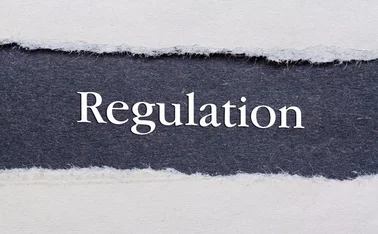
Harmonising insurance guarantee schemes across Europe

Harmonisation of insurance guarantee schemes is a topic that has been debated for some time but European Commissions direction on it due next year Sam Barrett looks at how this could work in practice.
Moves are underway to harmonise insurance guarantee schemes across Europe. But, while there is a consensus among member states that this would be of benefit to the insurance industry, achieving agreement on the detail is proving much more difficult.
Harmonising IGSs has a major advantage as Paul Clarke, insurance partner at Pricewaterhouse Coopers, explains: "The market needs a safety net to instil confidence. The European Union has created a single market for insurance, allowing insurers to sell anywhere within the region, but this is undermined by the differences in IGSs from country to country. As a result, the concept of harmonising schemes is attractive across the EU."
Imperfect landscape
Certainly the current landscape is far from perfect, with the existence of IGSs patchy across the EU. According to research carried out by the European Insurance and Occupational Pensions Authority, 17 member states operate a general insurance guarantee scheme. Based on figures from the European Commission, this means, in terms of gross written premiums, that one-third of the market does not have a scheme in place, with 56% of non-life insurance policies unprotected.
Where schemes are in place, the detail varies greatly, not just in terms of the level of protection but also who is eligible, when the scheme will intervene and how it is funded. As an example, some schemes offer protection on a ‘home state basis', which would mean a policyholder would be protected if their insurance was with a domestic insurance company, but not if their insurer was based in another EU state. If it were offered on a ‘host state basis', they would be protected wherever their insurer was based, providing the schemes in both countries are equivalent. EIOPA found that of the 17 schemes in place, six are operated on a home state basis, seven on a host state basis and four operate on both.
"This is undermined by the differences in IGSs from country to country." Clarke
Patchy protection
Given the patchy nature of protection across the EU, there have been discussions surrounding this move for many years. However, the debate was reignited in 2010 when, following the financial crisis, the European Commission published a white paper on IGSs.
This proposes the introduction of a directive to ensure that all member states have a scheme that meets minimum standards and offers protection on the basis of the ‘home country' principle. It also recommends schemes are funded in advance with an option to collect any shortfalls after the event if necessary.
Mixed reaction
Reaction has been mixed. In its response to the white paper, the CEA, the European insurance and reinsurance federation, said that although it supported the need for consumer protection, there was "no case for an EU initiative on IGSs".
It argued that adequate consumer protection was already in place and, with this set to be further strengthened through Solvency II there was no need for further strengthening of schemes.
"It also recommends schemes are funded in advance."
Minimum standard
But it conceded that, if the European Commission's proposal was adopted, a minimum harmonisation of national schemes, with all offering protection on a home country basis to avoid duplication of coverage, was the most appropriate route. It also felt that any directive should only cover life insurance policies, as the financial commitment from consumers was greater than for general insurance.
There is certainly logic behind this position. Mr Clarke explains: "Relatively speaking the history of insurance failures is very modest, with Independent Insurance and Chester Street the main examples in the last 10 years or so. Insurers also survived the drama of the last few years well. But while loss of coverage on an insurance policy is the thin edge of the wedge, the big issue is what happens to those with an outstanding claim or policyholders with life assurance."
More support
But while the CEA does not believe there is a need for enhanced consumer protection for general insurance, other bodies, including the Association of British Insurers, are more supportive of the EC's proposal.
EIOPA, through its predecessor CEIOPS, has also lent its support to the EC's proposal, feeding into discussions before the white paper with a recommendation that a minimum harmonisation approach is adopted to fill in the gaps in existing coverage.
"Relatively speaking the history of insurance failures is very modest." Clarke
Existing framework
More recently, its task force on IGSs conducted an examination of the market to determine whether the framework for cross-border cooperation was in place to enable the development of a European network of IGSs. This made a number of recommendations including clear cooperation procedures between schemes to ensure consumer protection and a mechanism for settling disputes.
But while recommendations for the next steps are flying around the insurance industry, Mr Clarke believes there are still some significant stumbling blocks preventing the introduction of a harmonised IGS. The first of these is the way schemes are funded. He explains: "Should insurers pre-fund a scheme or should funding be collected retrospectively? There are arguments for and against each option but it's important to get agreement."
Complicating factors
He says the other complicating factor concerns how an IGS offers protection. As an example, he points to an insurance company based in one country that sells its policies across the EU: "If it fails, which guarantee scheme should respond? You could end up with a situation where the policyholders in one state are funding the guarantee schemes of other states. These are big issues that need to be resolved."
Although these are significant hurdles, there are indications that a harmonised IGS will happen. Europe-wide guarantee schemes exist for other areas of financial services. For example, the 1994 Deposit Guarantee Scheme Directive and the 1997 Investor Compensation Scheme Directive harmonised the minimum protection standards for these areas across the EU.
The European Commission is due to publish its IGS directive in 2012 and Mr Clarke is confident it will be able to overcome the hurdles and introduce something similar for insurance. "I expect there will be a resolution. There's a clear statement of intent and a lot of political will to create a harmonised guarantee scheme," he says. "The chances of it happening are high but I don't think it's likely to happen imminently."
Only users who have a paid subscription or are part of a corporate subscription are able to print or copy content.
To access these options, along with all other subscription benefits, please contact info@postonline.co.uk or view our subscription options here: http://subscriptions.postonline.co.uk/subscribe
You are currently unable to print this content. Please contact info@postonline.co.uk to find out more.
You are currently unable to copy this content. Please contact info@postonline.co.uk to find out more.
Copyright Infopro Digital Limited. All rights reserved.
As outlined in our terms and conditions, https://www.infopro-digital.com/terms-and-conditions/subscriptions/ (point 2.4), printing is limited to a single copy.
If you would like to purchase additional rights please email info@postonline.co.uk
Copyright Infopro Digital Limited. All rights reserved.
You may share this content using our article tools. As outlined in our terms and conditions, https://www.infopro-digital.com/terms-and-conditions/subscriptions/ (clause 2.4), an Authorised User may only make one copy of the materials for their own personal use. You must also comply with the restrictions in clause 2.5.
If you would like to purchase additional rights please email info@postonline.co.uk








